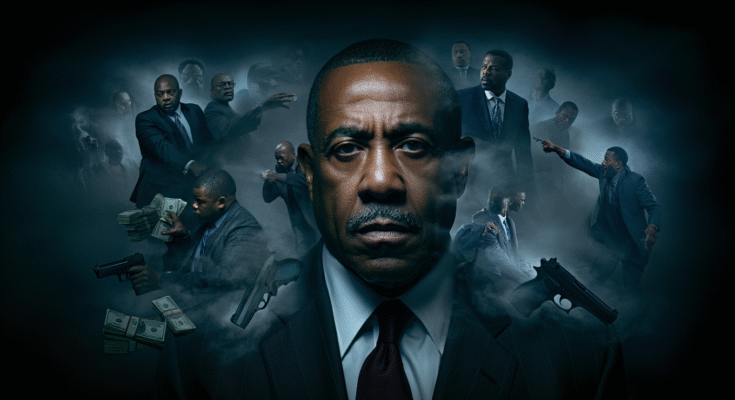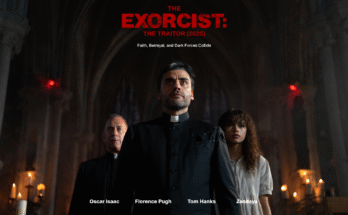There’s a line that echoes through American Gangster 2: “The empire is gone. The shadow remains.” It’s not just a tagline — it’s the heartbeat of the film, a haunting reflection on what happens when a man outlives his own myth. Nearly two decades after Ridley Scott’s American Gangster cemented Frank Lucas as one of cinema’s most complex antiheroes, Denzel Washington returns to the role with the gravitas of a man who’s seen too much and survived too long. What unfolds isn’t just a sequel — it’s an elegy. A meditation on age, consequence, and the fading light of power.
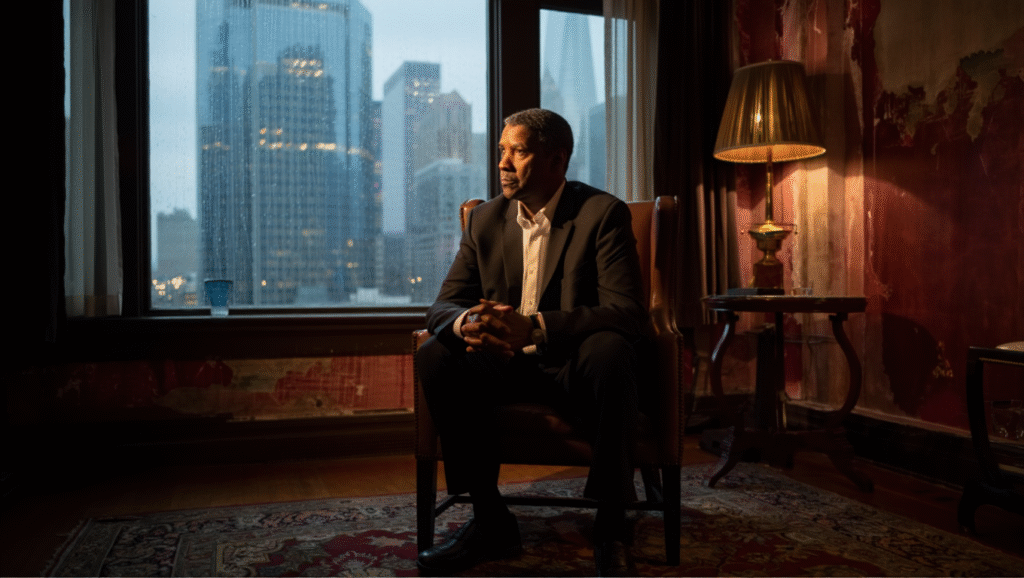
Frank Lucas is no longer the untouchable kingpin who ruled Harlem with ruthless efficiency. Time has stripped away his soldiers, his influence, and his swagger. He moves slower now — his empire reduced to stories told in whispers and warnings. Yet, the streets remember. His name, once synonymous with fear and respect, has become mythic currency for a new generation of predators who wear his legacy like a crown they didn’t earn. And when his name begins to resurface in a series of brutal killings and drug wars he never sanctioned, Lucas realizes that even in retirement, he’s still the architect of chaos.
Denzel Washington’s performance is monumental — subdued, introspective, and utterly commanding. He plays Lucas not as a man chasing redemption, but as one wrestling with irrelevance. Every glance, every pause, carries the weight of history. His silence speaks louder than any gunfire. This is Denzel at his most nuanced: a study in quiet menace and wounded pride, a man haunted not by what he lost, but by what he built.
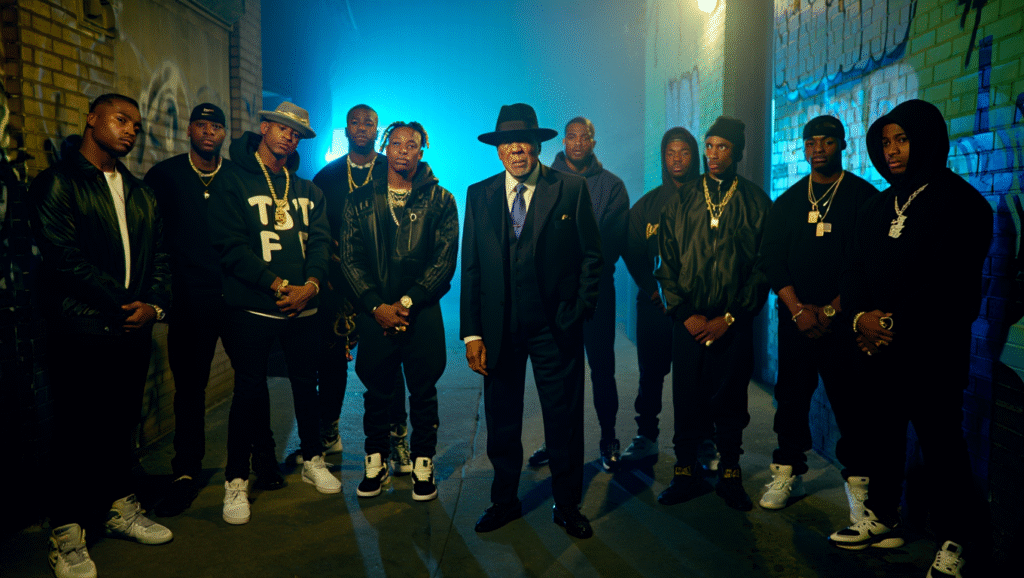
The film’s tone is darker, colder, and more meditative than its predecessor. Where the first American Gangster was a chronicle of ascent, American Gangster 2 is a requiem for the fallen. Director Antoine Fuqua crafts the story with noir-like precision — drenched in shadow, rain, and moral ambiguity. New York is no longer the kingdom Frank ruled; it’s a city that’s evolved without mercy. Glass towers replace brownstones, synthetic drugs replace heroin, and loyalty has been traded for influence. It’s a world Lucas no longer recognizes, and one that no longer has room for his code.
The film introduces a new generation of criminals — slick, ruthless, and disillusioned. They idolize Frank Lucas but misunderstand everything he stood for. They’ve taken his brand, stripped it of honor, and weaponized it for profit. When one of these upstarts uses Frank’s name to ignite a gang war, the aging kingpin is forced to step back into the shadows — not to reclaim power, but to reclaim the truth of who he was. It’s not ambition that drives him now, but preservation of his legacy.
Fuqua frames Lucas’s return to the streets not as triumph, but as tragedy. Every act of violence feels heavier, every decision more desperate. The cinematography mirrors his decay — muted tones, flickering neon, the constant contrast between darkness and dim light. The camera lingers on the quiet moments: Lucas alone at a diner, staring at a newspaper headline about the city he once owned; a silent walk through an abandoned warehouse where echoes of his past still haunt the walls.
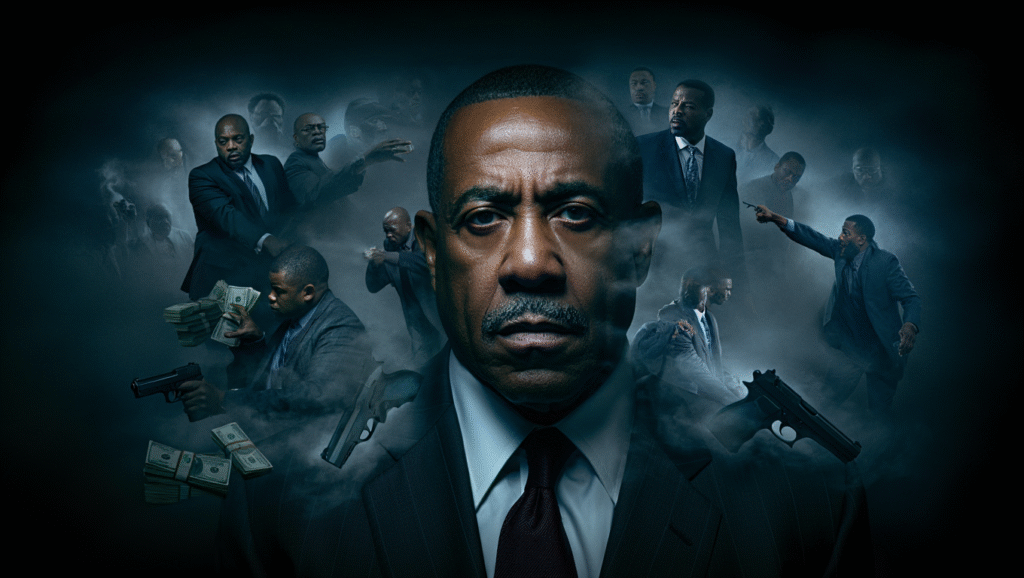
Charlize Theron (rumored in a key supporting role as a federal investigator turned confidant) provides a striking counterbalance to Denzel’s intensity. Her character is neither ally nor enemy, but an observer of decay — someone who sees the legend and the man beneath it. Their scenes together are electric, filled with unspoken truths and moral tension. She becomes the mirror he can’t look away from — a reflection of what remains after the fire has burned out.
The violence in American Gangster 2 is sharp but sparse, used not for spectacle but for consequence. Every bullet means something. Every betrayal cuts deep. The film isn’t interested in glorifying the criminal world — it’s interested in dissecting it, showing how the codes that once governed the streets have dissolved into nihilism. Lucas’s world was built on rules, loyalty, and power with purpose. The new generation only knows chaos, hashtags, and hollow ambition. It’s not just his empire that’s gone — it’s his era.
As the film reaches its final act, Frank Lucas stands at the crossroads between redemption and self-destruction. The empire he once built has become a graveyard of ghosts — and the only way to reclaim his story is to burn the last remnants of it down. The climactic confrontation isn’t between rivals, but between past and present, legend and reality. It’s brutal, poetic, and inevitable. When the smoke clears, what remains isn’t victory — it’s truth.
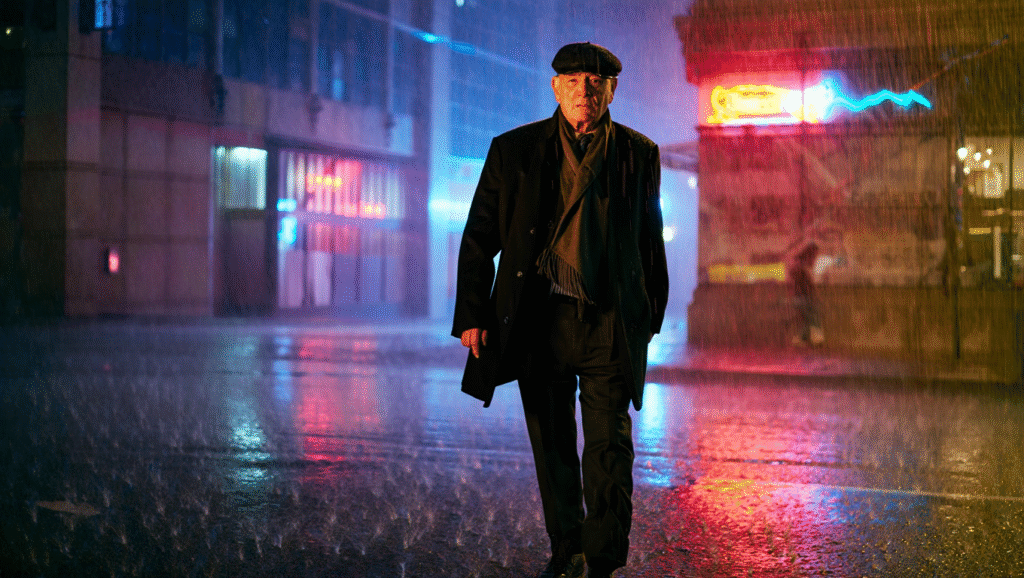
Denzel’s final scene is one of quiet devastation. Standing in the rain, staring at the city lights that no longer belong to him, he mutters to no one in particular: “They took my name, but they’ll never know my cost.” It’s a line that lingers long after the credits roll — a final testament to a man who lived by his own rules, and died by their echoes.
American Gangster 2 is more than a crime film; it’s a meditation on legacy and mortality — a powerful reminder that even kings can’t outrun their shadows. It’s about what remains when the empire fades, when the power turns to dust, and when all that’s left is the story. And as long as that story is told, Frank Lucas will never truly disappear.
⭐ Rating: 4.9/5 — Brooding, elegant, and unrelentingly powerful. Denzel Washington delivers a masterclass in cinematic reckoning. The legend doesn’t rise again — he endures.
